Filter by

Quorum Sensing vs Quorum Quenching: A Battle with No End in Sight
Hubungan mikroba dengan semua bentuk kehidupan dapat berupa kehidupan bebas, simbiosis, atau patogenik. Manusia memiliki sel mikroba 10 kali lebih banyak daripada sel mereka sendiri. Bakteri ditemukan di permukaan kulit, di usus, dan bagian tubuh lainnya. Bakteri penyebab penyakit adalah yang paling mengkhawatirkan. Sebagian besar penyakit menular disebabkan oleh bakteri patogen yang memiliki k…
- Edition
- -
- ISBN/ISSN
- 978-81-322-1982-8
- Collation
- -
- Series Title
- -
- Call Number
- 579.2 CHA q
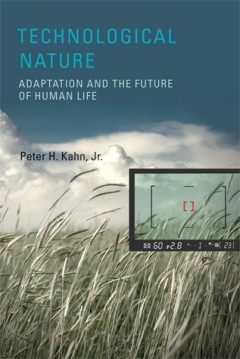
Technological Nature: Adaptation and the Future of Human Life
Why it matters that our relationship with nature is increasingly mediated and augmented by technology.OCLC-licensed vendor bibliographic record.
- Edition
- -
- ISBN/ISSN
- 9780262295253
- Collation
- 1 online resource (xviii, 230 pages) :illustrations
- Series Title
- -
- Call Number
- -
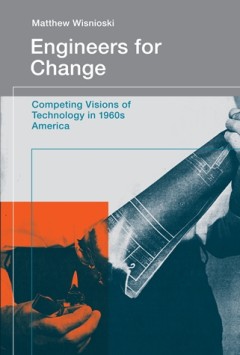
Engineers for Change: Competing Visions of Technology in 1960s America
An account of conflicts within engineering in the 1960s that helped shape our dominant contemporary understanding of technological change as the driver of history. In the late 1960s an eclectic group of engineers joined the antiwar and civil rights activists of the time in agitating for change. The engineers were fighting to remake their profession, challenging their fellow engineers to embrace…
- Edition
- -
- ISBN/ISSN
- 9780262305181
- Collation
- 1 online resource (xvii, 286 pages) :illustrations.
- Series Title
- -
- Call Number
- -

Functions in Biological and Artificial Worlds: Comparative Philosophical Pers…
This text features investigations into the relationship between organism and artifacts from the perspective of functionality.OCLC-licensed vendor bibliographic record.
- Edition
- -
- ISBN/ISSN
- 9780262255271
- Collation
- 1 online resource (x, 302 pages) :illustrations.
- Series Title
- -
- Call Number
- -
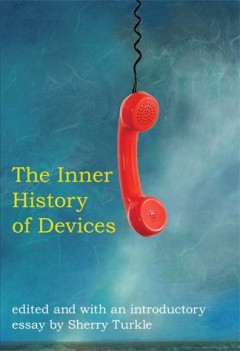
The Inner History of Devices
"For more than two decades, in such landmark studies as The Second Self and Life on the Screen, Sherry Turkle has challenged our collective imagination with her insights about how technology enters our private worlds. In The Inner History of Devices, she describes her process, an approach that reveals how what we make is woven into our ways of seeing ourselves. She brings together three traditi…
- Edition
- -
- ISBN/ISSN
- 9780262285247
- Collation
- 1 online resource (x, 208 pages)
- Series Title
- -
- Call Number
- -
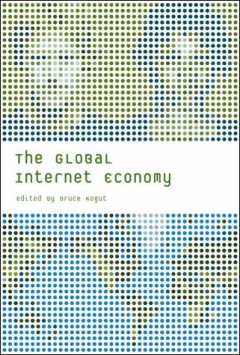
The global internet economy
By 2002, all but a handful of countries were connected to the Internet. The intertwining of the Internet and the globalization of finance, corporate governance, and trade raises questions about national models of technology development and property rights. The sudden ability of hundreds of millions of users to gain access to a global communication infrastructure spurred the creation of new firm…
- Edition
- -
- ISBN/ISSN
- 9780262277365
- Collation
- 1 online resource (xvi, 520 pages) : illustrations
- Series Title
- -
- Call Number
- 001 GLO
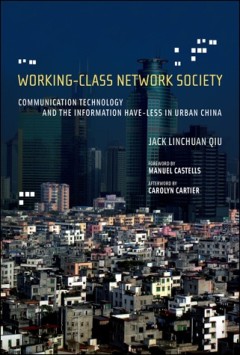
Working-Class Network Society: Communication Technology and the Information H…
This is an examination of how the availability of low-end information and communication technology has provided a basis for the emergence of a working-class network society in China.
- Edition
- -
- ISBN/ISSN
- 9780262255073
- Collation
- -
- Series Title
- -
- Call Number
- -

The Paradox of Scientific Authority: The Role of Scientific Advice in Democra…
The authors assess the influence of scientific advice in societies that increasingly question scientific authority & expertise. This paradox is explored through an ethnographic study of the scientific advisory committee, one of the key sites for the interaction of science, policy & society.OCLC-licensed vendor bibliographic record.
- Edition
- -
- ISBN/ISSN
- 9780262258609
- Collation
- 1 online resource (viii, 223 pages).
- Series Title
- -
- Call Number
- -
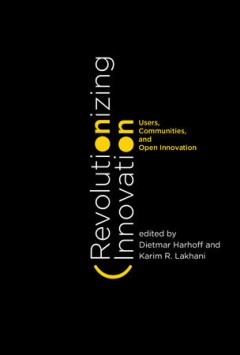
Revolutionizing innovation :users, communities, and open innovation
The last two decades have witnessed an extraordinary growth of new models of managing and organizing the innovation process that emphasizes users over producers. Large parts of the knowledge economy now routinely rely on users, communities, and open innovation approaches to solve important technological and organizational problems. This view of innovation, pioneered by the economist Eric von Hi…
- Edition
- -
- ISBN/ISSN
- 9780262331524
- Collation
- 1 online resource (xv, 577 pages) :illustrations
- Series Title
- -
- Call Number
- -
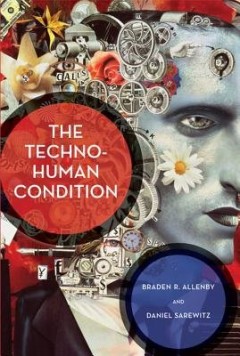
The techno-human condition
A provocative analysis of what it means to be human in an era of incomprehensible technological complexity and change.OCLC-licensed vendor bibliographic record.
- Edition
- -
- ISBN/ISSN
- 9780262295666
- Collation
- 1 online resource (xi, 222 pages) :illustrations
- Series Title
- -
- Call Number
- -
 Computer Science, Information & General Works
Computer Science, Information & General Works  Philosophy & Psychology
Philosophy & Psychology  Religion
Religion  Social Sciences
Social Sciences  Language
Language  Pure Science
Pure Science  Applied Sciences
Applied Sciences  Art & Recreation
Art & Recreation  Literature
Literature  History & Geography
History & Geography